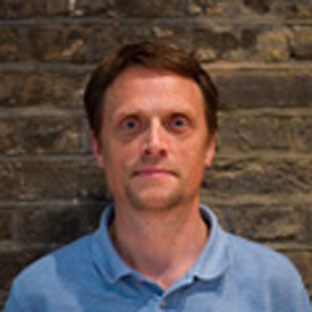It is exactly one year ago that the RSA launched its final report on the Citizens’ Economic Council.
At its launch Andy Haldane, Chief Economist at the Bank of England, announced that the Bank of England would adopt the RSA's recommendations for setting up regional citizen councils using the Bank’s Agency Network.
But this is not the only advance that has happened in the past year: despite much doom and gloom about the state of our traditional democratic institutions, the green shoots of a more deliberative democracy are sprouting all around the world.
The Citizens' Economic Council
The RSA’s Citizens’ Economic Council (CEC) was a two-year programme of activities with a number of components. At the core was the Council itself - two groups of citizens in London and Manchester, both meeting on four occasions before coming together for a combined final summit in Birmingham.
In total 59 citizens participated in these deliberation days. The Council found that to build a strong democratic discourse about economics it is essential to meet people where they are; to proceed from people’s everyday experience of the economy through work, at play and in their communities.
This suggested that the most fruitful domain for applying deliberative democracy might be, at least initially, at the local and regional level.
Bank of England Citizen Panels
The Council’s work led directly to the agreement by the Bank of England to establish regional citizens reference panels to help inform its work. It also recommended building greater citizen engagement into the work of local and combined authorities as part of the process of devolution.
The Bank of England’s citizen’ panels that have emerged as a result of the CEC involve around 24 people at each of 24 different panel meetings throughout the year.
Pilot panel meetings have taken place in the North East and Northern Ireland and further panel meetings are now in train for the South West, Scotland, West Midlands and East Midlands throughout the spring.
Through carefully facilitated meetings, representative groups of ordinary citizens are beginning to provide input to the Bank’s various decision-making processes in an important and new way.
Innovations in Democracy
But this isn’t the only new experiment in deliberative democracy in the UK.
In the government’s Civil Society Strategy last summer, a commitment was made for DCMS and MHCLG to set up new innovative models of participatory democracy with local authorities.
The Innovations in Democracy programme attracted very positive media coverage and garnered significant local authority interest.
With the RSA chosen as one of the delivery partners for the programme – along with Involve, DemSoc and MySociety – local authorities are eagerly awaiting an announcement about the successful local authorities and the topics they plan to debate through new deliberative forums.
There have been rumours that the programme may be in jeopardy. If true this would be big mistake.
The global spread of deliberative democracy
Meanwhile, deliberative democracy is becoming more and more widespread.
Last week in Belgium, the regional government in Ostbelgien (the German-speaking region) voted unanimously to form a permanent citizens’ council alongside up to 3 yearly citizens’ assemblies with all bodies being composed through random sortition and using deliberative processes.
This follows the Madrid City council’s approval of the establishment of a permanent deliberative body. An annually rotating group of randomly selected residents will monitor municipal action and make recommendations for how it might be improved.
The body will also have the power to propose city-wide referendums on issues proposed by citizens on the online platform, Decide Madrid.
In Canada, nearly 1 in 60 citizens have now received invitations to take part in the myriad deliberative assemblies organised in several Canadian cities as mayors are increasingly adopting citizens’ panels as a vital part of their decision-making architecture in their cities.
These are but a few of the most recent developments taking place all over the world. As politicians begin to realise the value of citizens’ juries and assemblies in complementing the rightful place of representative democracy it is likely we will see many more.
Related articles
-
How to run a citizens’ assembly
Riley Thorold
Sharing what we’ve learned from the Innovation in Democracy programme.
-
Get involved in public deliberation during Covid-19
Owain Service Riley Thorold
The RSA is partnering with a new organisation called Engage Britain to run a large scale, online conversation about the challenges facing the country.
-
Police are already using AI. The public deserve a say.
Will Grimond
New research from the RSA suggests the police aren’t doing enough to engage the public on how they are using new technologies.




Join the discussion
Comments
Please login to post a comment or reply
Don't have an account? Click here to register.
It's great to see this happening. Perhaps beginning with the experience of ordinary people, it will be more collectively and institutionally acceptable to also start surfacing the entrenched dynamics that so many decision-makers seem so completely resistant to addressing together. We need to move quickly away from the illusion that life is something we can consider at equilibirum, with huge investment in all senses to keep it that way.